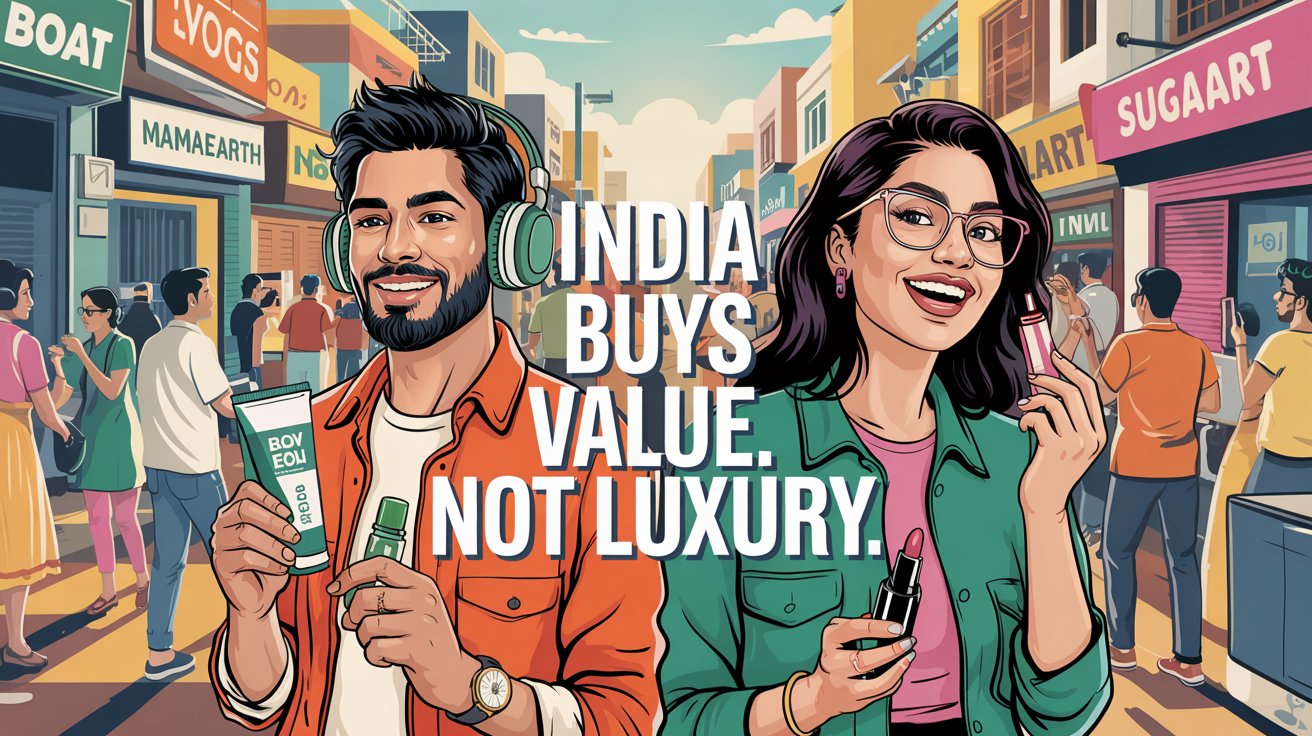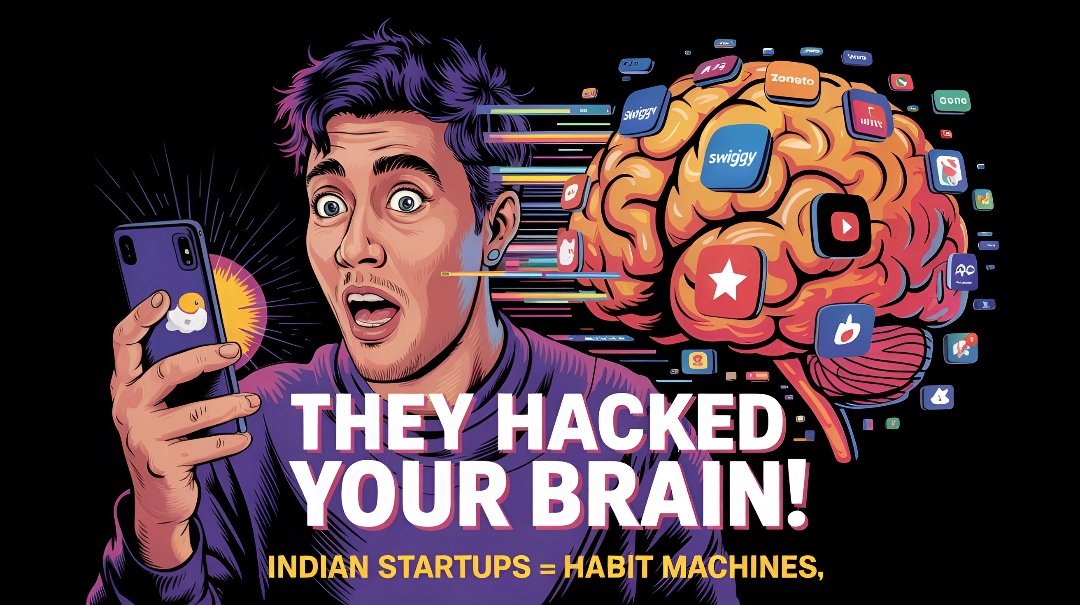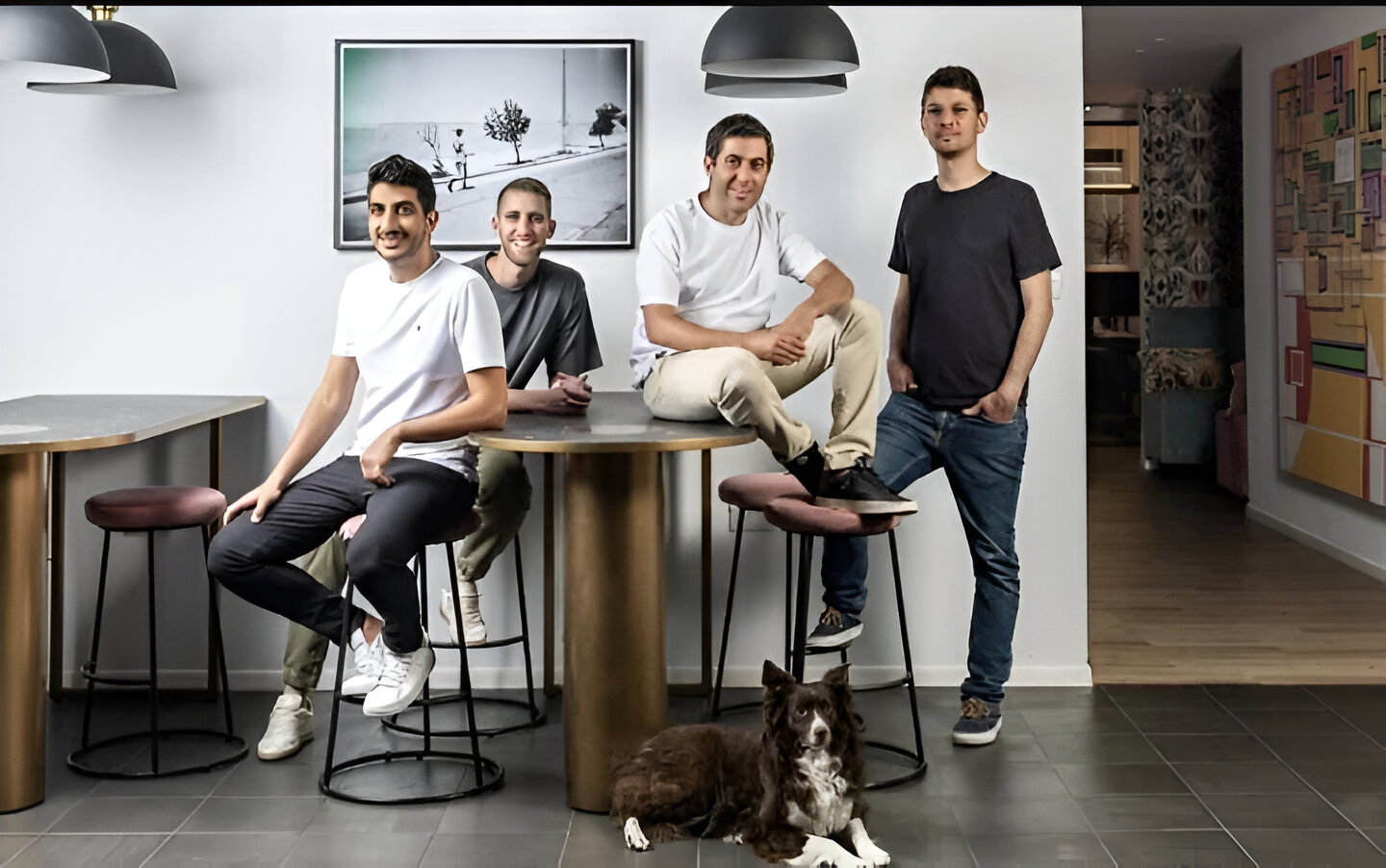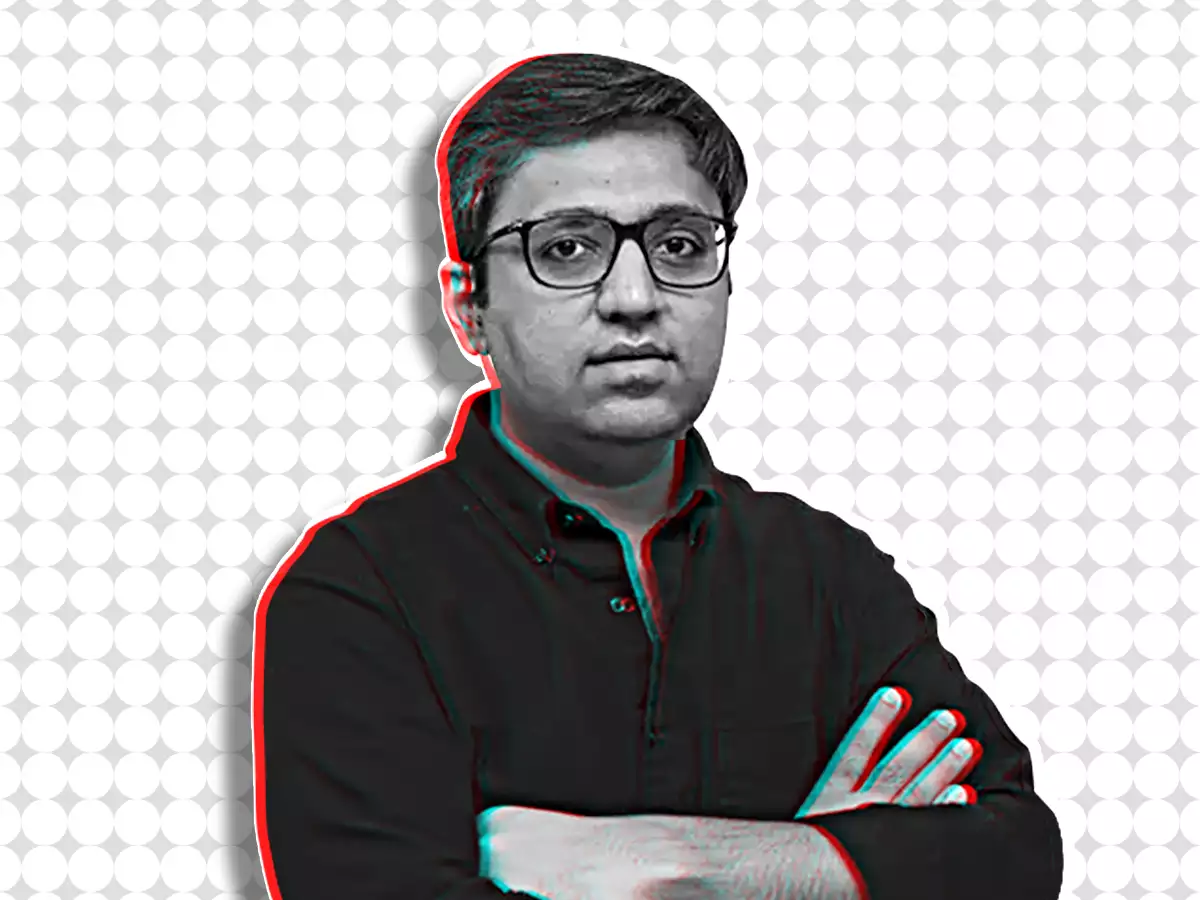Back
Vishu Bheda
•
Medial • 10m
𝗜𝗻𝗱𝗶𝗮’𝘀 𝗕𝗶𝗴𝗴𝗲𝘀𝘁 𝗦𝘁𝗮𝗿𝘁𝘂𝗽𝘀 𝗗𝗼𝗻’𝘁 𝗦𝗲𝗹𝗹 𝗟𝘂𝘅𝘂𝗿𝘆. 𝐓𝐡𝐞𝐲 𝐒𝐞𝐥𝐥 𝐀𝐟𝐟𝐨𝐫𝐝𝐚𝐛𝐢𝐥𝐢𝐭𝐲 𝐚𝐭 𝐒𝐜𝐚𝐥𝐞. 𝗧𝗵𝗲 𝗧𝗿𝘂𝘁𝗵 𝗠𝗼𝘀𝘁 𝗙𝗼𝘂𝗻𝗱𝗲𝗿𝘀 𝗠𝗶𝘀𝘀: Everyone dreams of building a premium brand. But in India… "𝐒𝐭𝐚𝐫𝐭𝐮𝐩𝐬 𝐭𝐡𝐚𝐭 𝐬𝐜𝐚𝐥𝐞 𝐝𝐨𝐧’𝐭 𝐬𝐞𝐥𝐥 𝐥𝐮𝐱𝐮𝐫𝐲. 𝐓𝐡𝐞𝐲 𝐬𝐞𝐥𝐥 𝐚𝐬𝐩𝐢𝐫𝐚𝐭𝐢𝐨𝐧 𝐚𝐭 𝐚𝐟𝐟𝐨𝐫𝐝𝐚𝐛𝐥𝐞 𝐩𝐫𝐢𝐜𝐞𝐬." Why? Because 90% of India doesn’t care about exclusivity. They care about: → Style → Quality → But within reach 𝗧𝗵𝗲 𝗗𝟮𝗖 𝗕𝗼𝗼𝗺 𝗣𝗿𝗼𝘃𝗲𝘀 𝗧𝗵𝗶𝘀: Let’s break down how India’s top D2C brands won by 𝐦𝐚𝐤𝐢𝐧𝐠 𝐥𝐢𝐟𝐞𝐬𝐭𝐲𝐥𝐞 𝐚𝐟𝐟𝐨𝐫𝐝𝐚𝐛𝐥𝐞. 𝟭. 𝗯𝗼𝗔𝘁 — 𝗔𝘂𝗱𝗶𝗼 𝗳𝗼𝗿 𝘁𝗵𝗲 𝗠𝗮𝘀𝘀𝗲𝘀 → Apple sells AirPods at ₹20K. → boAt sells trendy, colorful audio gear at ₹999. They didn’t sell premium. They sold: → Cool + Loud + Affordable Result? boAt became India’s No.1 wearable brand. 𝟮. 𝗠𝗮𝗺𝗮𝗲𝗮𝗿𝘁𝗵 — 𝗡𝗮𝘁𝘂𝗿𝗮𝗹, 𝗔𝗳𝗳𝗼𝗿𝗱𝗮𝗯𝗹𝗲 𝗦𝗸𝗶𝗻𝗰𝗮𝗿𝗲 → No harsh chemicals. → Easy pricing. → Sold through influencers & trust. Mamaearth made organic skincare possible for Tier 2-3 India. Result? Fastest D2C brand to hit ₹1000 Cr revenue. 𝟯. 𝗦𝗨𝗚𝗔𝗥 — 𝗕𝗼𝗹𝗱 𝗕𝗲𝗮𝘂𝘁𝘆 𝗳𝗼𝗿 𝗜𝗻𝗱𝗶𝗮𝗻 𝗦𝗸𝗶𝗻 Imported makeup was too expensive — and not built for Indian skin tones. SUGAR changed that. → Affordable lipsticks → Made for Indian women → Distributed via Tier 2-3 stores & influencers They didn’t just sell makeup. They sold confidence to young women. 𝟰. 𝗟𝗲𝗻𝘀𝗸𝗮𝗿𝘁 — 𝗘𝘆𝗲𝘄𝗲𝗮𝗿 = 𝗦𝘁𝘆𝗹𝗲 + 𝗡𝗲𝗰𝗲𝘀𝘀𝗶𝘁𝘆 Glasses used to be boring and costly. Lenskart made them: → Stylish → Affordable → Home-delivered And boom — a boring utility became a fashion accessory. 𝗧𝗵𝗲 𝗖𝗼𝗺𝗺𝗼𝗻 𝗧𝗵𝗿𝗲𝗮𝗱: These brands didn’t sell “premium.” They sold: → Daily use products → With style, quality & smart pricing → To middle-class India 𝐓𝐡𝐞𝐲 𝐦𝐚𝐝𝐞 𝐩𝐞𝐨𝐩𝐥𝐞 𝐟𝐞𝐞𝐥 𝐫𝐢𝐜𝐡 — 𝐰𝐢𝐭𝐡𝐨𝐮𝐭 𝐛𝐞𝐢𝐧𝐠 𝐫𝐢𝐜𝐡. 𝗧𝗵𝗲 𝗕𝗶𝗴 𝗟𝗲𝘀𝘀𝗼𝗻 𝗳𝗼𝗿 𝗙𝗼𝘂𝗻𝗱𝗲𝗿𝘀: "India doesn’t need more luxury brands. India needs more lifestyle brands for the middle 500M people." Build for 𝐯𝐚𝐥𝐮𝐞 + 𝐯𝐢𝐛𝐞. That’s the real unicorn path.

Replies (6)
More like this
Recommendations from Medial
Suhani Gupta
"Just figuring out w... • 7m
The First Emotional Brands Before branding was about feelings… it was about features. But in the early 1900s, some brands flipped the script. Coca-Cola stopped selling “refreshment.” They sold happiness in a bottle. Hallmark didn’t just sell card
See MoreDownload the medial app to read full posts, comements and news.
















/entrackr/media/post_attachments/wp-content/uploads/2021/08/Accel-1.jpg)



















